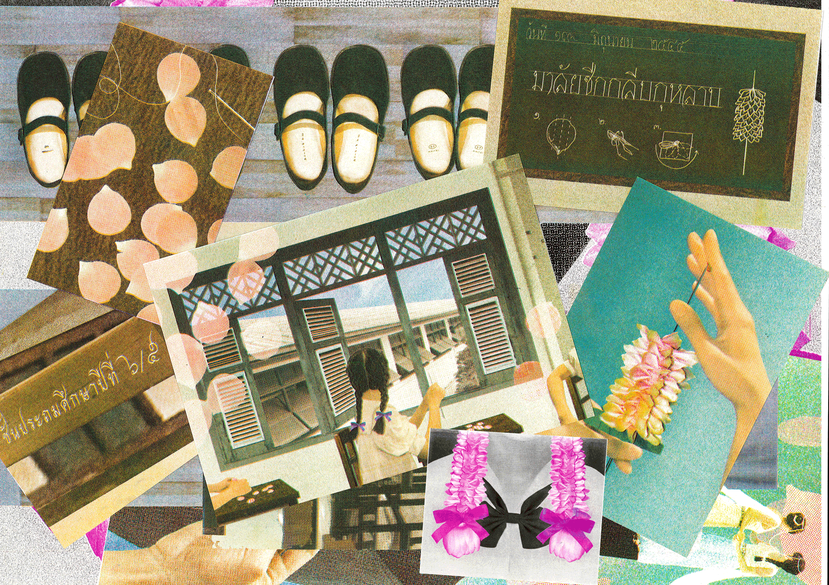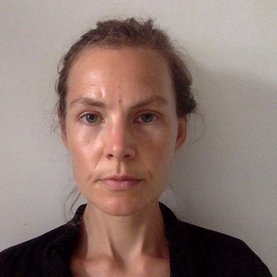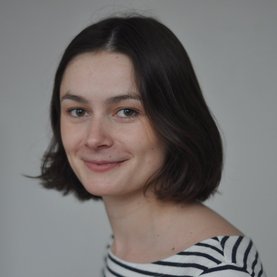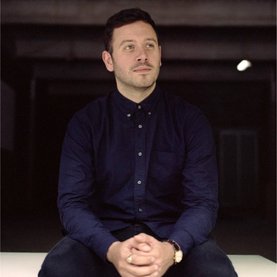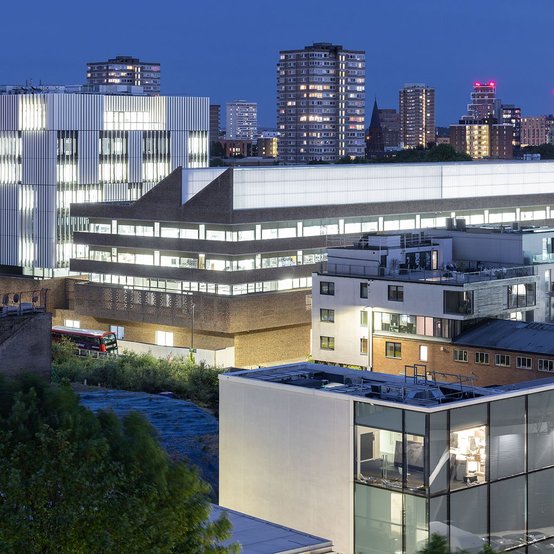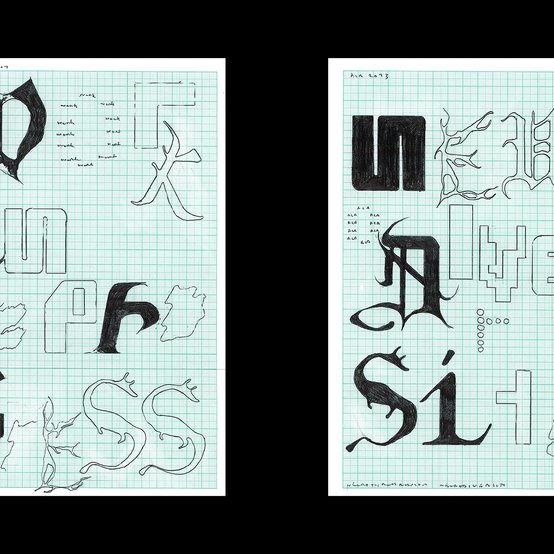
Overview
Situated at the forefront of critical experimentation
Key details
- 180 credits
- 1 year / 45 week programme
- Full-time study
School or Centre
Current location
- White City
Next open event
- 6 May 2025
- Join next Online Q&A Week
Round 2 application deadline
- 30 Jun 2025
Creating transformative movements that invite change.
- Drive your practice with critical thinking and making while creating connections across disciplinary boundaries.
- Benefit from our inclusive vision of communication, which embraces everything from archival research, radical pedagogies, performance, publishing, radio and fieldwork to participatory practices and workshops.
- We have a legacy of progressive teaching and learning environment that values collaborative, dialogic and cooperative working methods.
The Visual Communication programme at the Royal College of Art is pushing the boundaries of graphic design, illustration and experimental forms of communication by critically examining our place in the world today. We value agency and critical experimentation, and aim to foster an interdisciplinary environment where students can draw from various fields of knowledge, skills and perspectives. We look to situate ourselves meaningfully within new disciplinary territories, and broader cultural and societal landscapes.
We value practical and discursive approaches to making, and see Visual Communication as fundamentally a conversational practice – one that embodies the act of creating and sharing by going beyond the mere transmission of information. We encourage active engagement in building connections, and fostering ongoing dialogues we seek to form bridges that link ideas, people, and communities in meaningful ways. By creating spaces where diverse perspectives meet, we aim to activate new understandings and narratives to bring about positive change.
Explore further
Catch the replays from our latest online Open Day.
Gallery
Staff
Facilities
The School of Communication is currently located on our White City site.
View all facilitiesOur mixed-use studios encourage collaborative working, thought, awareness and action. In addition, you have access to craft and technical workshop areas and excellent technical support in the College.
Our alumni
Our alumni form an international network of creative individuals who have shaped and continue to shape the world. Click on each name to find out more.
Where will the RCA take you?More details on what you'll study.
Find out what you'll cover in this programme.
What you'll cover
What will I learn?
As a student, you will become well-practised in interpreting ideas, events, complex data, knowledge and experiences. You will learn to translate these into artefacts, narratives or connections that might manifest across or between the physical, digital or virtual. You will learn to elicit new knowledge and create new insights through language, storytelling, tools, and materiality. Your role is to form a bridge: to make possible forms of communication that can connect people and connect ideas.
We’ll give you creative agency to explore the ideas that drive your practice. Recent work by our students has included the body in digital space, the gentrification of communities, immigration rights, intangible cultural heritage, feminist and LGBTQ+ histories, media archaeology, the living archive, material labour, the privatisation of public space, protest, racial justice, visions of utopia and more. Our open and inclusive vision of the practice of communication produces work as divergent in form as in content. We embrace multidisciplinary approaches, including sound, type-design, performance, publishing, moving image, workshops, fieldwork, documentary, radio, virtual reality, comics, ceramics, happenings, drawing, walking and writing.
Programme structure
The programme is delivered across three terms and includes a combination of programme, School and College units.
Term 1
In the unit Encounters (45 credits), together we will develop ‘conversations’ within a critical framework that aims to question existing ideas and models of knowledge production. By staging encounters with other disciplines, communities, and sites, we will examine and expand on lived experience, motivation and practice. We will formulate inquiries that unsettle the familiar and ask – What if?
Across terms 1 and 2, you will participate in AcrossRCA (30 credits). This unit aims to support you to meet the challenges of a complex, uncertain and changing world by bringing you together to work collaboratively in cross-programme interdisciplinary teams. In your team you will develop a self- initiated themed project, informed by expertise within and beyond the College. These projects will challenge you to collectively use your intellect and imagination to address key cultural, social, environmental and economic challenges. In doing so, you will develop and reflect on the abilities required to translate knowledge into action, and help demonstrate the contribution that the creative arts can make to our understanding and experience of the world.
Term 2
The Making Worlds with Others School-wide unit (15 credits) will allow you to work alongside students within and across the School. Working from the perspective of your individual practices and disciplines, you will develop a project that engages with others and/or creates mutual exchanges of ideas and understandings, with the intention to create critically engaged situations and/or outcomes resulting in convivial knowledge exchange. Through collaborative learning and making the unit will support you in understanding knowledge exchange and public engagement and how you are to situate your own practice in these territories. The unit will also ask you to question how socially engaged practice can contribute to cultural understanding, co-researching and co-creating methods for knowing with, not knowing about.
Following on from Encounters, you will begin testing the series of critical questions you’ve emerged within the unit Affinities (30 credits). You will identify which discussions you want to participate in and practice listening and connecting with others on a non-individualistic level. You will start a dialogue with the people, objects and ideas you want to engage with and be expected to connect to them with care and purpose. You will consider new modes and methods relevant to your research, and focus on making, exchanging and experimenting with this knowledge by working collectively.
Term 3
In the Independent Research Project (60 credits), we ask you to focus on locating and establishing yourself and your work in the external contexts in which you seek to engage and connect your practice to emerging critical discourses. You will enact the critical frameworks, methods and tools you have developed through the programme. Towards the end of the programme, you will have the opportunity to participate in a collectively curated and produced public-facing activity. This could include developing a group exhibition, publication or curated events, and contributes to the body of work presented for your unit assessment.
This MA is delivered over 45 weeks.
AcrossRCA
AcrossRCA is a compulsory 30-credit unit which is delivered as part of all MA programmes.
Situated at the core of your RCA experience, this ambitious interdisciplinary College-wide unit supports you in responding to the challenges of complex, uncertain and changing physical and digital worlds. Developed in response to student feedback, AcrossRCA creates an exciting opportunity for you to collaborate meaningfully across programmes.
Challenging you to use your imagination and intellect to respond to urgent contemporary themes, this ambitious unit will provide you with the opportunity to:
- make connections across disciplines
- think critically about your creative practice
- develop creative networks within and beyond the College
- generate innovative responses to complex problems
- reflect on how to propose ideas for positive change in local and/or global contexts
AcrossRCA launches with a series of presentations and panel discussions from acclaimed speakers who will introduce the themes and act as inspirational starting points for your collaborative team response.
Delivered online and in-person across two terms, the unit has been designed to complement your disciplinary studies and to provide you with a platform to thrive beyond graduation.
Requirements
What you need to know before you apply
Our students come to Visual Communication from disciplines including graphic design and illustration but develop the tools to allow communication and connections across disciplinary boundaries. This interdisciplinary environment draws from diverse geographies, rich cultural contexts and multiple fields of study.
Candidates are selected entirely on merit and applications are welcomed from all over the world. The selection process considers creativity, imagination and innovation as demonstrated in your portfolio, as well as your potential to benefit from the programme and to achieve high MA standards overall.
You will normally have completed a first-degree undergraduate qualification in a related subject or be able to evidence equivalent professional experience in related fields.
All candidates are required to submit an online portfolio of work to be assessed by the programme’s senior staff team. Candidates should create an online portfolio that best reflects their abilities, experience and interests. The portfolio must follow College guidelines for uploading work such as using the College application site and giving a brief description for each piece of work.
Candidates are selected on the basis of a body of work that demonstrates an advanced understanding of the subject and sufficient technical skill to realise intentions, evidence of commitment to the subject, intellectual curiosity, open-mindedness, the ability to collaborate, to engage in debate and respond to criticism, and the ability to engage in sustained and consistent study.
We also want enthusiasm for your practice, commitment and a strong sense of personal responsibility for your own learning and development.
What's needed from you
Portfolio requirements
The majority of our students come from the disciples of Visual Communication but this is not essential, we welcome career changers and those from other fields. We welcome a diverse community of students who are interested in many different things. We are looking for potential and the ability to challenge and push at the boundaries of the disciplines. When putting together your application, think about which projects matter to you the most.
You should submit two core projects that demonstrate your creative process in depth. This should include developmental work and the decisions you made that shaped the project.
You should submit up to three supporting projects, which could be more experimental or demonstrate ideas or themes that you are currently exploring.
Each project should be uploaded as a landscape PDF to include no more than 12 pages, and include a short introductory text of not more than 200 words). Please also upload any supporting video or sound files.
We encourage you to include projects that tell us something about your values and who you are as a person. For example, something about your community, a personal interest or collection, or maybe something you are passionate about outside of art and design.
Finally, don’t forget to be playful and have fun putting this together.
Personal statement
Please provide a 300-word written personal statement that addresses the following points:
- Introduce yourself, your interests and your motivations for applying to the Royal College of Art, and to this programme in particular.
- Briefly summarise any educational background and professional experience to date that will support your application.
- Tell us what you want to do in the future.
Video requirements
To be considered for the programme, we ask that you upload a video recording. The video should be two minutes and recorded on your phone or laptop.
Talking to us directly through the camera, please answer the following interview questions. Please be specific in your answers and give examples.
- What discipline(s) do you identify or connect with? Is it Graphic Communication, Illustration, Visual Communication, Experimental Communication or another.
- Why do you want to do an MA? What is it about MA Visual Communication that appeals to you?
- Tell us about the topics, themes or questions you hope to explore through your time with us.
- Outside of your work, what is it that you are passionate about? How has your local community, culture or life experience changed or informed your work?
English-language requirements
If you are not a national of a majority English-speaking country you will need the equivalent of an IELTS Academic or UKVI score of 6.5 with a 6.0 in the Test of Written English (TWE) and at least 5.5 in other skills. Students achieving a grade of at least 6.0, with a grade of 5.5 in the Test of Written English, may be eligible to take the College’s English for Academic Purposes course to enable them to reach the required standard.
You are exempt from this requirement if you have received a 2.1 degree or above from a university in a majority English-speaking nation within the last five years.
If you need a Student Visa to study at the RCA, you will also need to meet the Home Office’s minimum requirements for entry clearance.
Fees & funding
For this programme
Fees for new students
Fees for September 2025 entry on this programme are outlined below. From 2021 onward, EU students are classified as Overseas for tuition fee purposes.
Home
Overseas and EU
Deposit
New entrants to the College will be required to pay a non-refundable deposit in order to secure their place. This will be offset against the tuition fees.
Home
Overseas and EU
Progression discount
For alumni and students who have completed an RCA Graduate Diploma and progress onto an RCA MA programme, a progression discount of £1,000 is available.
* Total cost is based on the assumption that the programme is completed in the timeframe stated in the programme details. Additional study time may incur additional charges.
Scholarships
Scholarships
The RCA scholarship programme is growing, with hundreds of financial awards planned for the 2025/6 academic year.
Applying for a scholarship
You must hold an offer to study on an RCA programme in order to make a scholarship application in Spring 2025. A selection of RCA merit scholarships will also be awarded with programme offers.
We strongly recommend that you apply for your programme as early as possible to stand the best chance of receiving a scholarship. You do not apply directly for individual awards; instead, you will be invited to apply once you have received an offer.
More information
Additional fees
In addition to your programme fees, please be aware that you may incur other additional costs associated with your study during your time at RCA. Additional costs can include purchases and services (without limitation): costs related to the purchase of books, paints, textiles, wood, metal, plastics and/or other materials in connection with your programme, services related to the use of printing and photocopying, lasercutting, 3D printing and CNC. Costs related to attending compulsory field trips, joining student and sport societies, and your Convocation (graduation) ceremony.
If you wish to find out more about what type of additional costs you may incur while studying on your programme, please contact the Head of your Programme to discuss or ask at an online or in person Open Day.
We provide the RCASHOP online, and at our Kensington and Battersea Campuses – this is open to students and staff of the Royal College of Art only to provide paid for materials to support your studies.
We also provide support to our students who require financial assistance whilst studying, including a dedicated Materials Fund.
External funding
There are many funding sources, with some students securing scholarships and others saving money from working. It is impossible to list all the potential funding sources; however, the following information could be useful.
Payments
Tuition fees are due on the first day of the academic year and students are sent an invoice prior to beginning their studies. Payments can be made in advance, on registration or in two instalments.
Start your application
Change your life and be here in 2025. Applications now open.
The Royal College of Art welcomes applicants from all over the world.
Before you begin
Make sure you've read and understood the entrance requirements and key dates.
More information about eligibility and key datesCheck you have all the information you need to apply. Choose the programme you want to apply to and review programme-specific entrance and portfolio requirements on the programme page.
Read our application process guideConsider attending an Open Day, or one of our portfolio or application advice sessions.
See upcoming sessionsPlease note, all applications must be submitted by 12 noon on the given deadline.
Ask a question
Get in touch if you’d like to find out more or have any questions.




